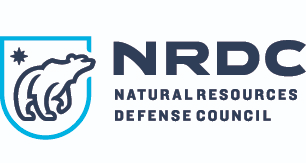Part 1 of 3 Parts
I often blog about the problems associated with the permanent disposal of over eighty thousand tons of spent nuclear fuel produced by U.S. nuclear power plants. It is estimated that the earliest a permanent geological repository for spent nuclear fuel could be constructed and put into operation in the U.S. would be 2050. With the spent nuclear fuel assemblies rapidly filling up the cooling pools at U.S. nuclear power stations, solutions to the waste problem will need to be developed as soon as possible. Without a geological repository or a massive construction of dry casks to store spent nuclear fuel onsite at nuclear power plants, in a few years, the cooling pools will be so full at many U.S. nuclear power plants that there will no longer be room to carry out refueling and plants will have to be shut down.
The Natural Resources Defense Council (NRDC) is one of the biggest environmentalist groups in the United States. It was recently invited to send representatives to testify by several Congressional committees on the subject of disposal of spent nuclear fuel at hearings dedicated to consideration of bills aimed at dealing with the approximately eighty thousand tons of spent nuclear fuel stored at nuclear power plants across the nation.
One fact became very clear during the Congressional hearings. It appears that the important stake holders in the process have lost trust in each other. Geoffrey Fettus is a senior attorney at the NRDC. He said, “Our government is at its strongest when each players’ role is respected. State consent and public acceptance of potential repository sites will never be willingly granted, unless and until power on how, when, and where the waste will be disposed of is shared, rather than decided by federal fiat.”
Trust can only flourish when there is a balance of power between the stakeholders in a discussion, especially when a dangerous and difficult issue like disposal of nuclear waste in underground repositories is being discussed. States will only agree to host permanent nuclear waste repositories when state officials can trust that other actors, such as federal officials, can be trusted. Currently, there is no equal balance of power between stakeholders on the nuclear waste disposal problem. States are afraid that if they allow any nuclear waste to be stored there, they will be open to demands that the entire stock of spent nuclear fuel waste will wind up in their state.
Currently, strong environmental laws have a successful history in the U.S. However, it is assumed that the federal government has the exclusive right to determine the fate of spent nuclear fuel. Such nuclear waste is exempt from all environmental laws. This means that the storage and disposal of spent nuclear fuel is also exempt from state and EPA regulatory oversight. The NRDC strongly believes that this needs to change. If the states are given regulatory oversight with respect to spent nuclear fuel, then there will be an increase of trust in the process and states will be able to make informed consent based on realistic scientific and political terms.
The NRDC presented this idea to all of the Congressional Committees involved in the consideration of bills regarding the disposal of spent nuclear fuel. Unfortunately, Congressional consideration has been locked into a set of talking points that are not necessarily valid and have hampered progress on the issue. Here are three major talking points that really need to be debunked.
Please read Part 2
